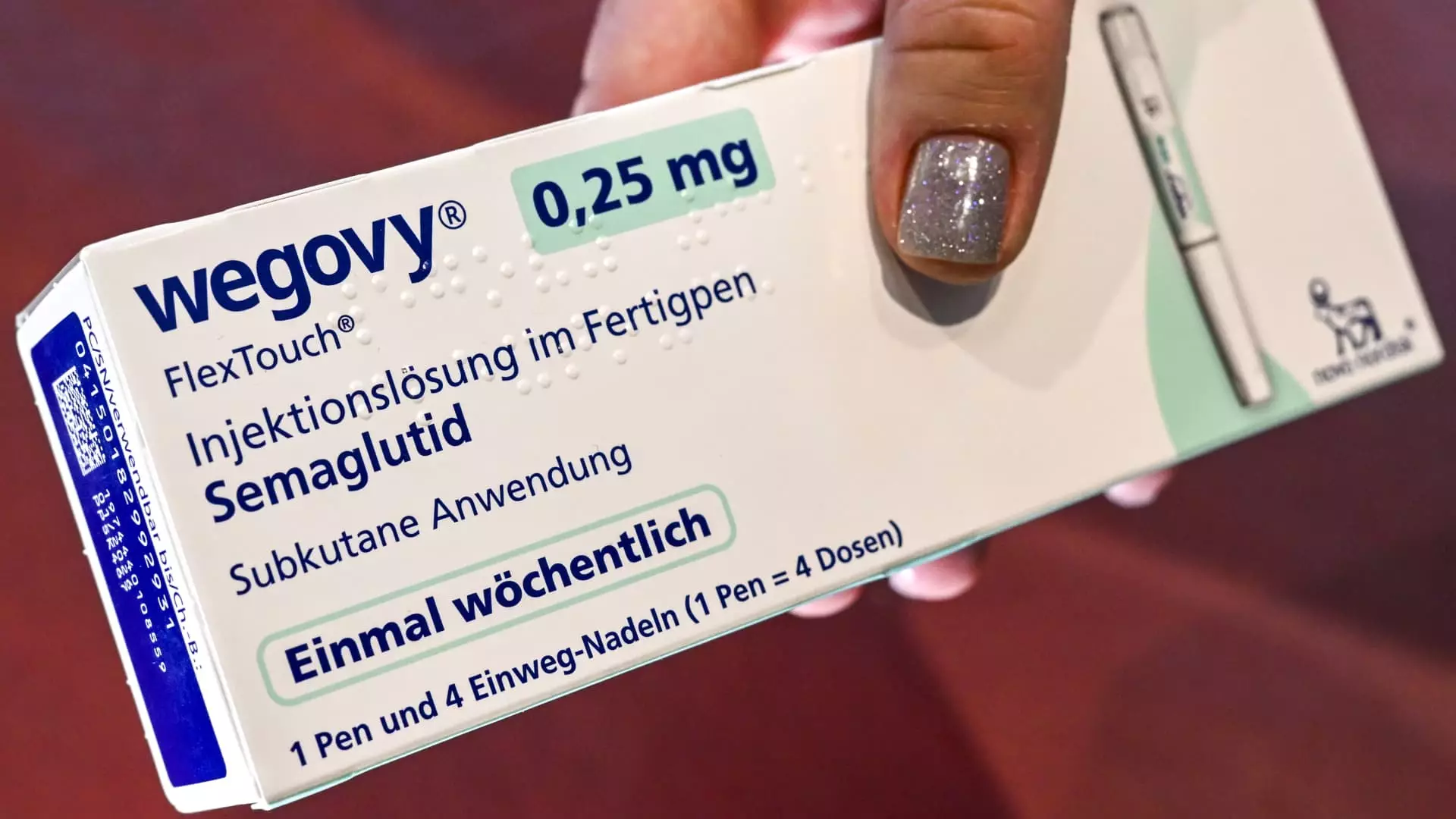In a world increasingly battling obesity, the announcement from Novo Nordisk regarding the expansion of Wegovy’s access through telehealth providers couldn’t come at a more crucial time. The medication is no longer in short supply, and the partnership with companies like Hims & Hers, Ro, and LifeMD promises to broaden its reach significantly. With the Centers for Disease Control and Prevention (CDC) estimating that over 42% of the U.S. adult population are classified as obese, treatments that genuinely help combat this issue are imperative. This mainstream access to Wegovy is not merely a business move; it is part of a larger conversation about public health and personal responsibility.
Stock Market Response Shows Confidence
When news broke regarding Wegovy’s new telehealth partnerships, the financial markets reacted enthusiastically. Hims & Hers’s stock saw a surge of 18%, while Novo Nordisk rose by 3%. Investors are betting on the effectiveness of Wegovy and its potential as a long-term solution in the burgeoning weight loss drug market. This positive response signals a broader industry confidence, suggesting that we may be on the cusp of a significant shift in how obesity treatments are perceived—not as a niche or luxury but as an accessible health necessity.
Cost Structure: A Double-Edged Sword
Wegovy’s price, while reduced to $499 through Novo Nordisk’s new pharmacy, still represents a considerable financial commitment for many potential users. Comparatively, Hims & Hers is offering it for $599, which includes additional services like nutritional guidance and 24/7 care. It’s worth noting that the price differential reflects the traditional challenges in healthcare—value versus cost. While some may argue that added services justify the higher cost, there exists a potential barrier for many looking to engage with this life-changing medication. The question of affordability looms large, even as we celebrate easier access.
Compounding Pharmacies: A Controversial Background
One cannot discuss Wegovy’s rollout without acknowledging the controversial role of compounding pharmacies. Many patients resorted to these unapproved versions during Wegovy’s widespread shortage. Compounding is both beneficial and problematic—while it provides tailored solutions for patients, it operates outside the rigorous FDA approval process. This raises ethical questions about what constitutes an acceptable treatment pathway. While Novo Nordisk’s partnerships aim to phase out reliance on these compounded medications, critics argue that this move may stifle innovative alternatives that could cater to individual patient needs. The balance between regulation and personalized medicine remains a hot-button issue.
The Role of Telehealth in the Modern Medicine Landscape
The incorporation of telehealth in accessing Wegovy marks a pivotal shift toward convenience in healthcare delivery. Patients can now acquire prescriptions from the comfort of their homes, a response to growing trends that leverage technology for medical solutions. This ease of access could lead to higher adherence rates among patients, a critical factor in any effective weight-loss journey. However, the success of this telehealth-driven model also depends on maintaining adequate support systems—something both Hims & Hers and Ro seem committed to. The players in this space are proving that telehealth can transform patient experience, so long as it comes with robust resources.
A Case for Patient-Centric Care
At the heart of these advancements is an emerging model focused on patient-centered care. Dave Moore of Novo Nordisk highlighted the importance of collaboration with telehealth companies in making Wegovy more accessible. As the healthcare landscape evolves, so too should our definition of quality care. Historically, the pharmaceutical industry has been critiqued for its profit-centric business models, but companies like Novo Nordisk are now showing signs of adapting to new consumer expectations. When patients feel prioritized and empowered in their healthcare journeys, the outcomes can improve dramatically—both medically and financially.
The Road Ahead: A Continued Debate
As the dust settles on Novo Nordisk’s announcement, the ongoing debate regarding obesity treatment and access will surely continue. The partnerships with telehealth companies are a promising step forward, but they do not resolve the deeper issues of affordability and equitable access in healthcare. Given that Novo Nordisk’s approach still emphasizes branded medication over generics, the implications for those without insurance coverage remain concerning. We must critically examine whether the strategies employed by pharmaceutical companies are genuinely aimed at improving public health or simply enhancing their bottom lines.
While the rollout of Wegovy through telehealth providers undoubtedly represents a significant development in the sphere of weight management, it also opens the door to intricate discussions about ethics, economics, and patient care in the healthcare industry. The societal responsibility to combat obesity may have gained a powerful ally, but it also begs a broader interrogation of how we approach such complex issues moving forward.

